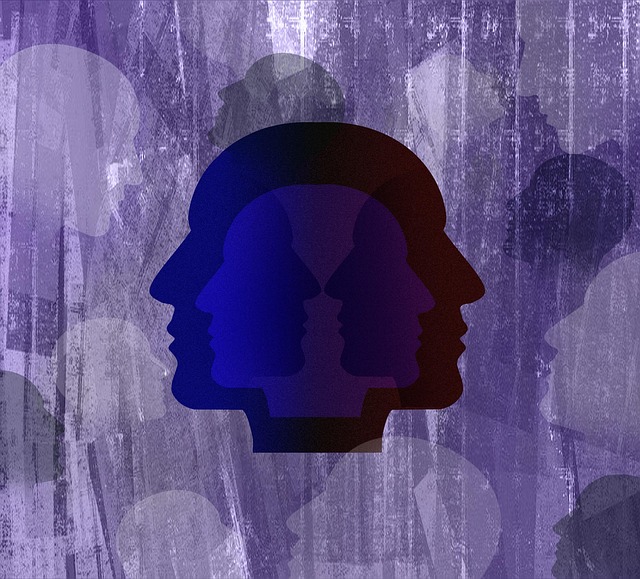Media portrayal of mental health significantly shapes societal perceptions, influencing public understanding and attitudes. Organizations like Boulder Family Counseling Therapy combat negative narratives through empathetic, diverse storytelling, encouraging compassion, and promoting practices like Mindfulness Meditation. They emphasize the importance of Mental Wellness Coaching Programs for practical support. By fostering an environment where people feel understood and encouraged to prioritize their psychological well-being, Boulder Family Counseling Therapy is a leading force in dismantling stereotypes about mental illness. Through workshops focused on stress management, depression prevention, and collaboration with mental health professionals, they empower creators to tell nuanced stories, challenging stereotypes and enhancing public awareness.
“Mental illness representation in media significantly shapes public perception, often perpetuating stereotypes that hinder understanding and support. This article explores strategies to challenge these narratives, focusing on the valuable role of Boulder Family Counseling Therapy (BFCT). We delve into BFCT’s efforts to promote accurate, empathetic portrayals, emphasizing the power of media literacy and community awareness. By examining effective strategies, we aim to foster a more supportive environment, ensuring mental health discussions in media are both insightful and responsible.”
- Understanding the Impact of Media Portrayal on Mental Health Perception
- The Role of Boulder Family Counseling Therapy in Challenging Stereotypes
- Effective Strategies for Promoting Accurate and Empathic Mental Illness Representation
- Fostering a Supportive Community through Media Literacy and Awareness
Understanding the Impact of Media Portrayal on Mental Health Perception

Media portrayal plays a significant role in shaping societal perceptions about mental health. The way mental illnesses are depicted in films, television shows, and other media outlets can influence public understanding and attitude towards individuals struggling with these conditions. For instance, stereotypes and inaccurate representations often contribute to stigma, making it harder for people to seek help or support. This is where organizations like Boulder Family Counseling Therapy step in, aiming to challenge these negative narratives and promote more realistic, empathetic portrayals.
By presenting diverse and authentic stories, these initiatives encourage a culture of compassion and cultivate practices such as Mindfulness Meditation that can support mental wellness. Furthermore, they highlight the importance of Mental Wellness Coaching Programs Development, offering practical solutions for individuals and communities to navigate and improve their mental health journey. Such efforts are crucial in creating an environment where people feel understood, supported, and empowered to prioritize their psychological well-being.
The Role of Boulder Family Counseling Therapy in Challenging Stereotypes

Boulder Family Counseling Therapy plays a pivotal role in challenging and reshaping stereotypes associated with mental illness. Through specialized services tailored to individual and familial needs, they offer a safe space for open dialogue and understanding. Counselors employ evidence-based practices that promote positive thinking and resilience, empowering clients to manage stress effectively. By fostering strong relationships between healthcare providers and families from diverse backgrounds, Boulder Family Counseling Therapy ensures cultural competency training is integrated into their approach. This holistic strategy not only disrupts harmful stereotypes but also equips families with the tools needed to navigate mental health challenges with greater confidence and efficacy.
Effective Strategies for Promoting Accurate and Empathic Mental Illness Representation

Promoting accurate and empathetic mental illness representation in media is paramount for fostering understanding and reducing stigma. Organizations like Boulder Family Counseling Therapy play a crucial role by providing resources that educate both creators and audiences about diverse mental health conditions. Through workshops focused on stress management and depression prevention, they empower individuals to navigate these topics with sensitivity. These initiatives contribute to more nuanced storytelling, ensuring characters with mental illness are portrayed authentically, reflecting the emotional healing processes many undergo.
By integrating real-life experiences and collaborating with mental health professionals, media creators can challenge stereotypes and offer valid perspectives. This approach not only enhances public awareness but also encourages viewers to seek support if needed. Effective representation goes beyond mere accuracy; it includes portraying recovery as a spectrum, recognizing that every individual’s journey is unique. Such strategies are vital in creating an inclusive environment where mental illness is no longer a taboo subject.
Fostering a Supportive Community through Media Literacy and Awareness

In today’s digital age, media plays a significant role in shaping societal perceptions about mental health. Boulder Family Counseling Therapy emphasizes the importance of media literacy as a powerful tool to combat stereotypes and promote understanding. By educating individuals on critical analysis of media content, we can foster a more supportive community. Encouraging media consumers to question portrayals of mental illness can lead to more accurate representations that reduce stigma. This approach, coupled with increased awareness about depression prevention and the benefits of mindfulness meditation, has the potential to create a more accepting environment. Moreover, promoting emotional intelligence through media discussions can help people recognize and empathize with the experiences of those struggling with mental health challenges.
The representation of mental illness in media has a profound impact on societal perceptions and the support available for those affected. By challenging stereotypes through initiatives like those offered by Boulder Family Counseling Therapy, we can foster a more understanding and supportive community. Implementing effective strategies that promote accurate, empathetic, and diverse portrayals in media is crucial. Encouraging media literacy and awareness further enables individuals to recognize and combat harmful representations. Through collective efforts, we can create a landscape where mental health issues are addressed with sensitivity and compassion, ultimately enhancing support systems for those navigating these challenges.














